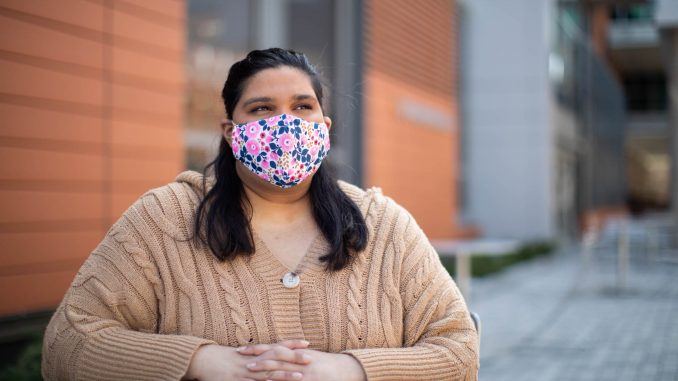
Sonia Purohit works full time to pay for rent and food, so receiving the $1,400 stimulus check on March 24 gave her a sense of relief.
“Whether it’s like rent, food, in general, and then have to save up for tuition, it gets expensive,” said Purohit, a junior media studies and production and public relations major.
The American Rescue Plan Act, which provided checks up to $1,400 to Americans, reached some bank accounts through direct deposit by March 24. The bill included adults claimed as dependents through IRS deposits sent to their parents, Business Insider reported. Students are using $1,400 direct payments for necessities like groceries and to pay off student debt.
People who are receiving paper checks, EIP debit cards and other payment types may still have their stimulus payments processing, CNET reported.
Purohit’s parents are using the $1,400 to begin paying her student loans while the United States Department of Education’s Office of Federal Student Aid has instituted a zero percent interest rate on student loans, Purohit said.
The American Rescue Plan Act differs from previous stimulus packages, like the March 2020 Coronavirus Aid, Relief and Economic Security Act and the January Consolidated Appropriations Act, because the stimulus checks are larger and more Americans are eligible like dependents, wrote Wayne Williams, an accounting professor, in an email to The Temple News.
There is also a stronger focus on giving tax breaks to households with children, funding school reopenings and vaccine distribution and extending unemployment benefits from 24 to 53 weeks, he wrote.
The first stimulus bill, which was passed on March 27, 2020, provided singles checks of up to $1,200, and the second stimulus bill, which was passed on Dec. 27, 2020, provided checks of up to $600, the New York Times reported.
Temple received $44.2 million in aid from the Consolidated Appropriations Act, of which $15 million went directly to students, The Temple News reported.
Williams believes Temple should use their allocated money to stabilize tuition, give faculty and staff classroom resources and pay competitive salaries to employees.
“How do we keep tuition down at a time where enrollment in the future becomes a challenge across the university?” Williams said. “So how do we keep down tuition? How do we look at programs that are aligned with values and the mission of the university?”
Sam Collington, a senior political science major, feels the federal government should’ve passed the bill sooner and included $2,000 stimulus checks.
“I don’t think $1,400 is enough,” Collington said. “When you compare where we were with the first stimulus bill versus where we are now, that’s a very huge gap. I think they should’ve paid people the entire time.”
Collington plans to save most of his $1,400 stimulus check and use the rest on immediate necessities like rent, utilities and groceries, he said.
He hopes Temple uses any funding it receives to offer financial assistance to students and faculty affected by the pandemic, he said.
Three in five college students reported experiencing basic needs insecurity due to the financial hardships imposed by COVID-19 in an April through May 2020 survey from the Hope Center for College, Community and Justice.
“If this helps anyone then that’s great, I hope it helps a lot of people,” Collington said. “I’m glad I got it.”
Because Katelyn Barbour already receives unemployment benefits and her parents still help her financially, she and her parents decided to split the stimulus check, with Barbour keeping $700.
This is the first COVID-19 stimulus payment Barbour received and she plans to save the money to buy a car to use during her summer internship at Temple’s film and media arts study away program in Los Angeles, California.
Barbour thinks college students should receive stimulus checks because many will save it or spend it on rent or necessities, she said.
“I feel like college students are always stuck in that limbo of being a full-time student, so it’s hard to make money anyways,” Barbour said. “Especially people that are graduating, they are more likely to spend it on responsible stuff like investing your money or buying a car.”
Passing another stimulus bill will likely depend on the timeline of vaccine efforts and the uncertainty of the pandemic, Williams said.
“The elephant in the room is the, what will happen with the pandemic, and I think what happens with the vaccination, and whether or not we can restore the baseline of public health in order for us to return to a more normal economy is uncertain,” he added.


Be the first to comment